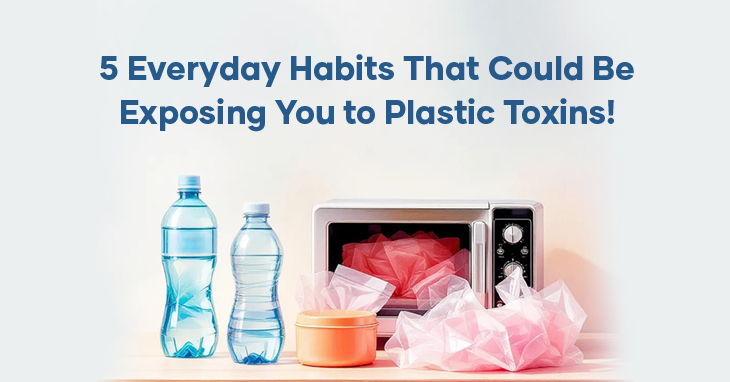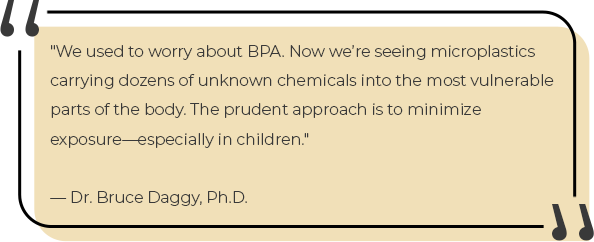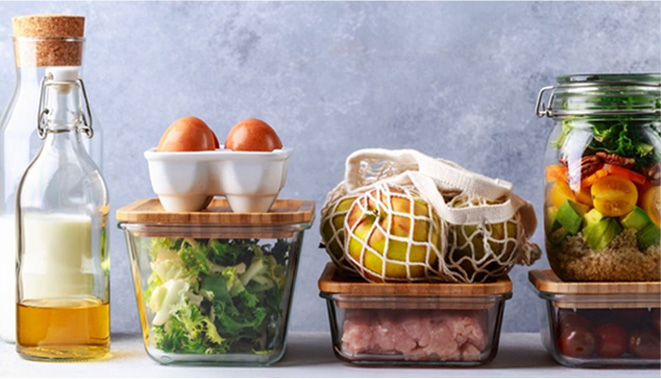5 Everyday Habits That Could Be Exposing You to Plastic Toxins!
Category: Healthy lifestyle

We’ve all heard about the plastic problem…
But what if I told you it’s no longer just about pollution—it’s about your and your family’s health?
Microplastics—tiny bits of plastic smaller than a grain of sand—have now been found in:
- Human placentas (yes, the one that nourishes a growing baby!)
- Breast milk
- Even a newborn baby’s first poop
If that doesn’t give you pause, this might: they’ve also been found in our food, water, the air we breathe… and even inside the human brain.
Yup. It’s officially everywhere. And it’s no longer a “someday” concern.
What Are Microplastics… and Why Should We Care?
Microplastics are formed when more significant plastic items break down—water bottles, food containers, packaging, and even synthetic clothing. They’re invisible to the eye but not to the body.
And they don’t just sit there.
Microplastics can carry chemicals like BPA and phthalates, which mess with your hormones, disrupt fertility, increase cancer risk, and have been linked to obesity, diabetes, and developmental issues in children.

So What Can You Actually Do?
Here’s the good news:
You don’t have to live off-grid or give up your favorite snacks.
Start with these smart, simple swaps to reduce your exposure to plastic—especially the kind that gets into your food and home.

 5 Real-Life Tips to Reduce Microplastic Exposure
5 Real-Life Tips to Reduce Microplastic Exposure
1. Ditch plastic in the microwave.
Even “microwave-safe” plastic can leach chemicals when heated.
Heat + plastic = not a great combo. Use glass or stainless steel instead.
Use glass or stainless steel instead.
2. Rethink your water bottle.
Bottled water often contains microplastics—not just from the bottle but also from the nylon filters used to purify it. Switch to a reusable stainless steel or glass bottle.
Switch to a reusable stainless steel or glass bottle.
3. Stop dishwashing plastic.
Dishwashers break down plastic faster, increasing chemical release into your food later. Wash by hand (or better yet, replace with glass!).
Wash by hand (or better yet, replace with glass!).

4. Watch your cans.
Most canned foods are lined with plastic resins that can contain BPA or similar chemicals. Choose glass jars, tetra packs, or fresh when you can.
Choose glass jars, tetra packs, or fresh when you can.
5. Go natural where you can.
Synthetic fabrics shed plastic fibers into the air and water. Wear and wash cotton, wool, or linen, and vacuum with a HEPA filter to reduce plastic dust.
Wear and wash cotton, wool, or linen, and vacuum with a HEPA filter to reduce plastic dust.
Let’s be honest— you can’t eliminate plastic completely. But you can make smarter everyday choices to protect your health and family.
Think of this as brushing your teeth. You don’t have to be perfect— you just have to show up consistently.
Join Us for the April Vitality For Life Show
Join us for our upcoming VFL Show: The Dirty Truth About Everyday Products and learn how to clean up your home, detox your routine, and protect your family from ingredients no one’s warning you about.
 Wednesday, April 9
Wednesday, April 9 8PM ET | 5PM PT
8PM ET | 5PM PT Don’t Miss Out—Save Your Spot Now!
Don’t Miss Out—Save Your Spot Now!
Small choices matter; what you learn in this webcast could change how you shop, eat, and live… for the better.
Let’s make this Earth Day matter. 
Gaetane
www.gaetaneferland.com



Facebook Comments